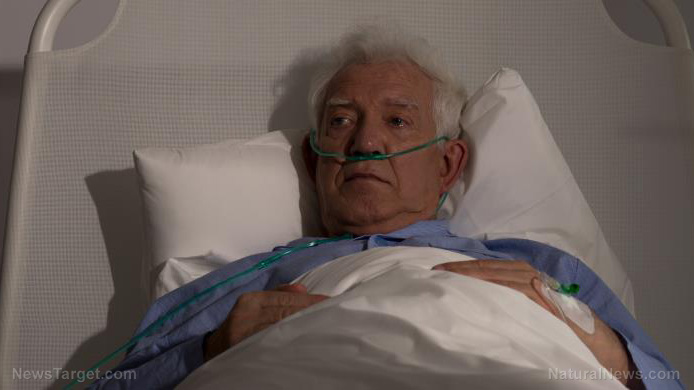The often sterile hallways of nursing homes reveal the silent struggle of many elderly residents, who find themselves ensnared in a troubling cycle influenced by pain, depression, and the side effects of numerous medications. A recent study highlights an alarming trend: the prevalent practice of combining tramadol, a commonly prescribed opioid, with various antidepressants, significantly increasing the risk of seizures.
Researchers conducted a study involving over 70,000 nursing home residents, revealing that the combination of tramadol and certain antidepressants elevates seizure risk by as much as 10 percent. This alarming statistic underscores the potential dangers posed by inadequate medication management within nursing facilities, where staff, often stretched thin, tend to rely on pharmaceuticals for pain and mood management instead of exploring safer alternatives rooted in nutrition or therapy.
Key Findings:
– The combination of tramadol with particular antidepressants can raise seizures risk by up to 10 percent.
– The risk stems from antidepressants that inhibit the CYP2D6 enzyme, hindering the metabolism of tramadol and leading to toxic buildup.
– Tramadol remains one of the most prescribed opioids despite its risks, and the use of antidepressants continues to escalate.
– Nursing homes increasingly resort to medication-heavy practices, frequently neglecting safer options like nutrition, music therapy, and physical rehabilitation.
**Understanding the Risks of Tramadol and Antidepressants**
Tramadol, often marketed as a less potent opioid, is frequently prescribed to patients avoiding traditional narcotics. However, its safety profile can be misleading. The FDA has recorded numerous instances of seizures linked to tramadol use, even among previously healthy adults. When tramadol is taken alongside antidepressants—especially those that interfere with the CYP2D6 enzyme—this risk becomes exacerbated. Medications like fluoxetine (Prozac), paroxetine (Paxil), and bupropion (Wellbutrin) are particularly problematic, as they can impede tramadol’s decomposition, resulting in dangerous accumulation in the bloodstream.
Dr. Yu-Jung Jenny Wei, co-author of the study from Ohio State University, emphasizes that the intersection of these medications warrants reevaluation by doctors. “Given how commonly both are prescribed to older adults, these interactions may be more important than previously thought,” she states. However, many nursing homes are caught in a cycle of short staffing and profit-driven incentives, maintaining a reliance on sedation through pills instead of addressing the underlying causes of pain and mental health issues.
**Consequences of Over-Medication**
The repercussions of such medication practices extend beyond the looming threat of seizures. Many nursing home residents are already on a mix of medications, including painkillers, sedatives, and antipsychotics, which can amplify adverse effects. Complications such as dizziness, confusion, and increased risk of falls become commonplace. In severe cases, residents can become so overwhelmed by sedatives that they lose the capacity to communicate or perform basic tasks like feeding themselves. Instead of reducing the number of medications, facilities frequently opt to introduce additional drugs to combat these side effects, leading to a relentless cycle of dependency.
Moreover, the focus on drug-centric solutions often sidelines beneficial non-pharmaceutical approaches. Nutrition-centric methods—such as incorporating anti-inflammatory diets, vitamin D supplements, and omega-3 fatty acids—have shown promise in alleviating pain and depression naturally. Likewise, physical therapy and social activities can significantly boost mood and mobility. Unfortunately, implementing these strategies requires time, appropriate staffing, and financial investment—resources that many nursing homes are either lacking or unwilling to provide.
**The Challenge of Embracing Alternatives**
The pervasive influence of the pharmaceutical industry complicates the landscape further. Medical practitioners, having been trained to resort to prescriptions as a primary response, often overlook holistic alternatives that could better serve their patients’ needs. Additionally, insurance coverage tends to favor medications over therapeutic interventions, making drugs the momentarily cheaper yet less effective option for under-resourced facilities. Many residents suffering from cognitive decline are often not consulted regarding their treatment options, leaving them vulnerable to escalating pharmaceutical cocktails designed to mask pain and sadness rather than address them.
The FDA’s adverse event reporting system only captures a small fraction of the actual harm associated with tramadol and similar medications. Estimates suggest that for every documented case of tramadol-induced seizure, nine remain unreported. Family members typically trust healthcare professionals to advocate for their loved ones, only to later witness a troubling decline in their health and wellbeing.
Promoting awareness is crucial for change. Health professionals need to weigh the risks of drug interactions more carefully while families should advocate for alternative treatments such as music therapy and proper nutrition. Supplementing residents’ care with anti-inflammatory compounds like curcumin, cannabidiols, boswellic acids, resveratrol, and thymoquinone could serve as beneficial adjuncts in managing pain and improving mental health. Ultimately, nursing homes must transition from a model of sedation to one centered on genuine care. Until such a shift occurs, the cycle of over-medication, along with its dire consequences, is likely to persist unchecked.






